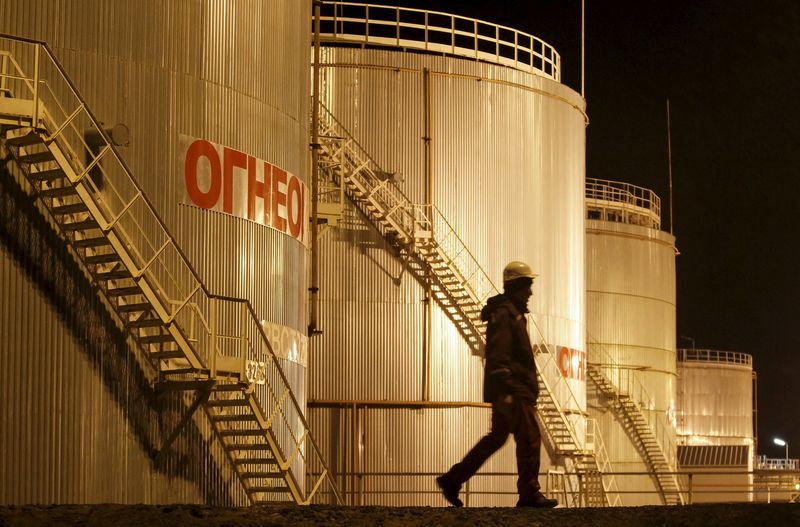Oil prices settle slightly lower even as weaker US jobs data firm up rate-cut bets
Oil prices settled lower Thursday, even as further signs of weakness in the labor market boosted hopes for rate cuts just a day after U.S. inventories fell much more than expected.
At 14:30 ET (18:30 GMT), West Texas Intermediate crude futures dropped 0.04% to $82.82 a barrel, while Brent oil futures expiring in September fell 0.04% to $85.211 a barrel, while Cooling labor market firms up rate-cut bets
Data released earlier Thursday showed that the number of Americans filing new applications for unemployment benefits rose more than expected last week.
Initial claims for state unemployment benefits increased 20,000 to a seasonally adjusted 243,000 for the week ended July 13, the Labor Department said on Thursday, above the 229,000 expected.
Claims were also revised lower in the prior week, while the unemployment rate rose to a 2-1/2-year high of 4.1% in June.
Cooling in the labor market lifted bets on U.S. rate cuts easing some concerns about slowing economic activity in the world's largest crude consumer. US crude inventories see sustained draws
Official data from the Energy Information Administration, released on Wednesday, showed U.S. oil inventories shrank by nearly 4.9 million barrels, compared to expectations for a 0.9 million barrels.
The data showed U.S. inventories falling for a third straight week, as demand in the world’s biggest fuel importer appeared to be picking up with the travel-heavy summer season.
But the picture surrounding the weekly inventory draw was muddied by builds in distillates and gasoline inventories. China concerns remain in play
Still, crude markets have been nursing steep losses over the past week, as a string of weak economic readings from top importer China drummed up concerns over slowing global demand.
Data released earlier in the week showed that economic growth in the world’s biggest oil importer slowed in the second quarter.
Concerns over increased trade tensions with the U.S. also grew after a Bloomberg report said the U.S. government was considering stricter restrictions on China’s technology and chipmaking sectors.
Such a move could draw ire from Beijing, sparking a renewed trade war between the two countries.
(Peter Nurse, Ambar Warrick contributed to this article.)
Source: Investing.com
